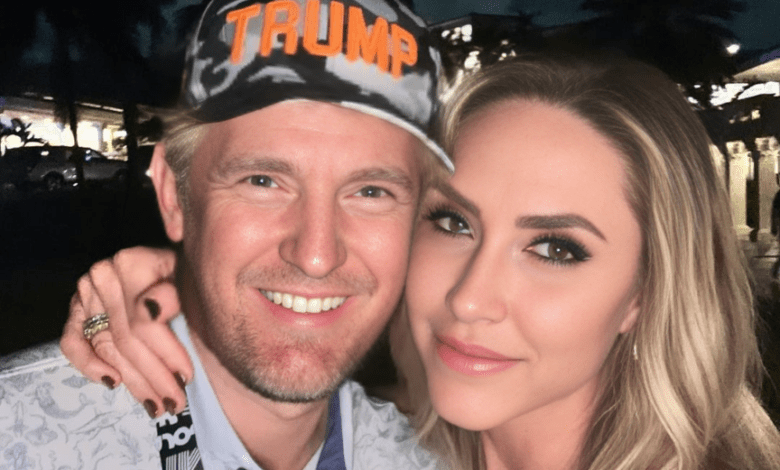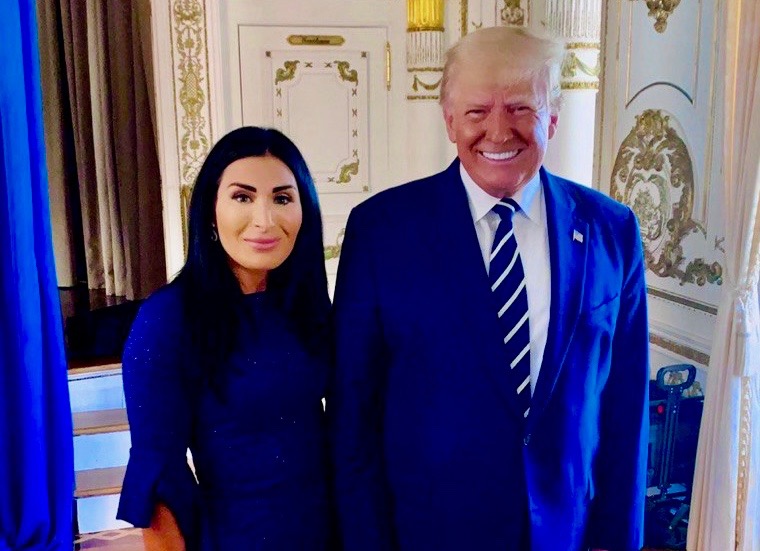
Trump’s Alliance with Far-Right Extremist Laura Loomer Raises Concerns Among Republicans
Lead Paragraph
In a disturbing yet unsurprising turn, former President Donald Trump has recently cozied up to Laura Loomer, a far-right conspiracy theorist known for her inflammatory comments and extreme views. Loomer, who has spread baseless claims about the 9/11 attacks and promoted racist and Islamophobic rhetoric, joined Trump at a 9/11 remembrance ceremony. The connection has sparked outrage and concerns among many, signaling a troubling embrace of fringe extremists by a key political figure.
The Rise of Laura Loomer in Trump’s Inner Circle
Over the past few years, Donald Trump has steadily aligned himself with controversial figures and movements. Loomer, a far-right provocateur, has become a visible part of Trump’s circle, making appearances alongside him at high-profile events, such as the recent September 11th memorial service. Her association with Trump has raised concerns, even among Republicans, who fear her influence might taint the party’s image.
Loomer gained notoriety after being banned from major social media platforms for promoting hate speech and conspiracy theories. She has since regained her platform, thanks to Elon Musk’s takeover of Twitter (now X), which reinstated her account. This move has only amplified her controversial voice, providing her with a broader platform to disseminate her extremist views.
Trump’s History of Embracing Extremists
Trump’s relationship with far-right figures is not new. From his comments on the Charlottesville neo-Nazi rally, where he referred to some participants as “very fine people,” to his cozying up with groups like the Proud Boys and Oath Keepers, Trump has consistently mainstreamed extremist ideologies. His embrace of figures like Loomer follows a pattern of courting individuals with dangerous and divisive rhetoric.
For years, Trump has leaned into the far-right, often using their incendiary claims to fuel his political campaigns. Whether it’s defending Holocaust deniers or promoting baseless election fraud conspiracies, Trump’s platform has become a megaphone for extremists.
Laura Loomer: A History of Controversy

Loomer’s rise to prominence is rooted in her ability to provoke outrage. She has been involved in numerous public stunts, such as chaining herself to Twitter’s headquarters in protest after her ban. Her comments have consistently been marked by overt racism, particularly against Muslims and immigrants. After the tragic deaths of migrants crossing the Mediterranean, she infamously tweeted, “Good, here’s to 2000 more,” a statement that appalled many and solidified her status as a far-right provocateur.
Loomer has also been a proponent of wild conspiracy theories, including claiming that 9/11 was an inside job orchestrated by U.S. officials. These views place her on the fringes of political discourse, yet Trump’s continued association with her suggests that such rhetoric is becoming more normalized within certain political circles.
Republican Party Concerns Over Loomer’s Influence
While Trump seems unfazed by Loomer’s divisive rhetoric, many Republicans are not. Behind the scenes, several party members have expressed discomfort with her proximity to the former president. Some worry that Loomer’s presence signals a deeper alignment between Trump and extremist ideologies, which could alienate moderate voters.
Even some of Trump’s staunch supporters, like Rep. Marjorie Taylor Greene, have denounced Loomer’s comments. Greene, who is no stranger to controversy herself, labeled Loomer’s comments about Vice President Kamala Harris as “appalling and racist,” distancing herself from the far-right provocateur.
2024 U.S. Election Harris Calls for Another Debate, Trump Declines: Latest Poll Results
The Bigger Picture: Trump’s Embrace of Fringe Voices
Trump’s continued association with fringe figures like Loomer is part of a broader trend. In recent years, Trump has leveraged conspiracy theories and incendiary rhetoric to energize his base. This approach has proven effective in rallying support from a certain segment of the electorate, but it has also deepened divisions within the country.
At a time when political violence is on the rise, fueled by misinformation and hate speech, Trump’s alignment with far-right figures is concerning. Loomer’s comments, which have included calls for violence against Trump’s perceived enemies, exemplify the dangerous rhetoric that is becoming increasingly mainstream within some political factions.
Elon Musk and the Rise of Far-Right Voices on Social Media

Elon Musk’s role in restoring far-right voices, including Loomer’s, to platforms like X (formerly Twitter) is significant. Under Musk’s leadership, the platform has reinstated numerous banned accounts, often under the guise of protecting free speech. However, critics argue that this has led to an increase in hate speech and misinformation.
Loomer, who was previously banned for promoting harmful conspiracy theories, now enjoys a resurgence on the platform. Her influence has grown, and her connection to Trump further legitimizes her position within far-right circles.
Conclusion: A Troubling Alliance
Donald Trump’s continued embrace of figures like Laura Loomer is a troubling sign of the direction his political campaign is taking. As he gears up for another presidential run, Trump’s reliance on far-right voices to mobilize his base could have dangerous consequences. The normalization of extremist rhetoric, particularly when echoed by influential figures, risks further polarizing the nation and inciting violence.
The Republican Party now faces a critical decision: continue to tolerate Trump’s embrace of fringe voices or distance itself from the extremism that threatens to define its future. As Trump’s ties to individuals like Loomer grow stronger, the question remains: how far will the party go to retain power, and at what cost to the nation’s soul?







2 Comments